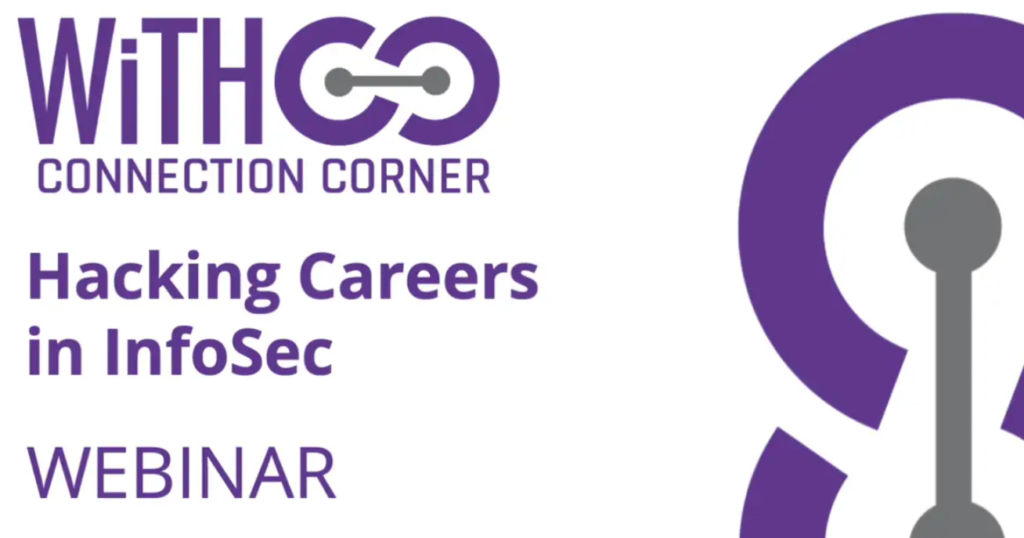
Women Wanted: Making the Leap Into the Cybersecurity Sector
Cybersecurity is critical in safeguarding employees, clients, intellectual property and proprietary developments at an organization but finding mentorships or career paths to follow can be challenging due to issues that include the nature of protecting access to sensitive data at all times.
That challenge was tackled on May 21 by speakers including Renee Ismail, VP of commercial banking identity and access management lead at JPMorgan Chase & Co., during the latest Women in Technology Hollywood (WiTH) Connection Corner webinar, “Hacking Careers in InfoSec.”
The thought-provoking conversation around cybersecurity, the fastest-growing and most in-demand tech sector, also touched on trends in information security, the security roles that are most critical within organizations, innovative ways to map out a career in cybersecurity, and how the speakers have established themselves in this field and how viewers could do so also.
 Despite the importance of the security sector, only one in four job positions are filled by qualified candidates.
Despite the importance of the security sector, only one in four job positions are filled by qualified candidates.
Ismail is “fairly new to the cybersecurity world,” she noted at the start of the webinar. But she noted: “That’s actually really true of a lot of organizations where we’re having to pull in folks from other technology sectors in order to sort of close the gap on cybersecurity hiring.” There is a tremendous need for people highly skilled in security architecture and solution design, she said.
She had worked her way up to product management “and then the financial collapse happened,” so it was “a terrible time to be in mortgage operations,” she recalled. “It was clear I needed to make a career change,” she said, noting she “applied for every IT project manager position” at her firm and “managed to talk one particular managing director into taking a shot on me.”
When she made her career change to IT, she didn’t have a bachelor’s degree, so she went back to college and “I got the company to pay for it,” she said with a smile. After earning her bachelor’s degree, she earned a master’s degree in management information systems, she noted, adding: “You have to take a chance and believe [in] yourself.”
Too often, women “short-sell ourselves on our transferable skills,” she said, noting that you should “never underestimate your ability to learn and to grow within yourself and take something you know and make it into something else.”
What she sees as being the “most essential” task for companies is to “make it easy,” she said. But she added: “That’s probably the biggest challenge that most organizations face. Complex organizations, whether in the media and entertainment sector or outside it like financial services (which her background is in), deal with risk and compliance and “can have 2,200 various cybersecurity risk and controls policies and procedures, and our software developers, in particular, can’t always memorize 2,200 policies,” she explained.
What is important for an organization to consider is “how do you build your architecture and your infrastructure to make sure that it integrates with your software development lifecycle [and] that when you’re building platforms, they’re really secure from the start,” she said.
Another speaker agreed with Ismail and said the “biggest challenge” is “keeping pace” and another big challenge is the fact that the business is changing all the time.
Education and training are crucial but, all too often, “people don’t want to be trained” and think they “know it all,” another speaker said.
Another challenge over the past year has been the shift to remote work, according to Ismail, who noted that there are “simple questions” that have been raised, including whether employees can safely print from home.
Internships are a great way to break into the IT sector and figure out what area is of most interest to you. But it is not so easy to do an internship in IT if you already have a full-time job in another field. Ismail conceded that can be “tricky,” but said people should be paid for all cybersecurity internships.
Nina Skorus-Neely, WiTH Foundation secretary, served as moderator for the panel discussion.
To view the entire presentation, click here.
